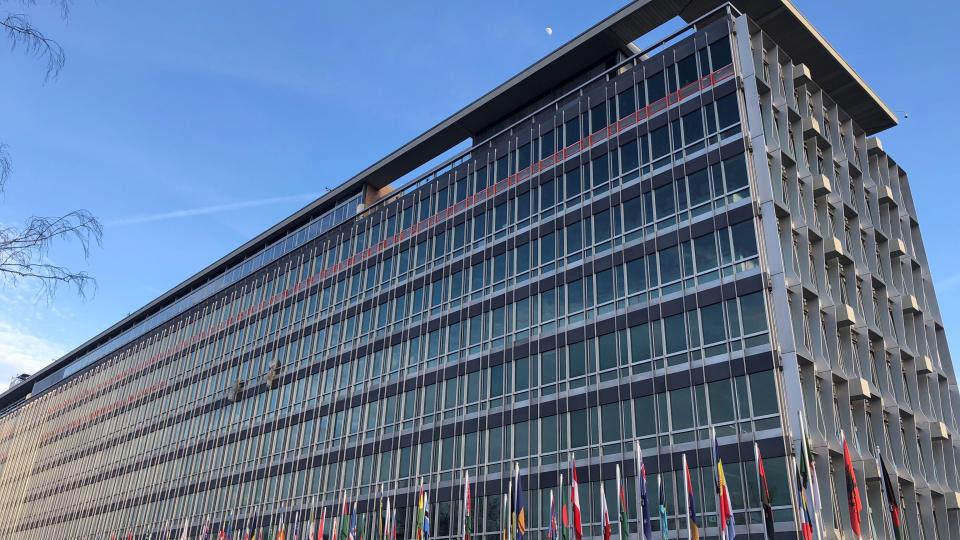ICN voices concerns at the crucial challenges facing world’s nurses and our health care systems

Representatives from the International Council of Nurses (ICN) have expressed the profession’s concerns about the major global challenges that are affecting health and health care at the World Health Organization’s 154th Executive Board meeting in Geneva, Switzerland.
In a video summing up the event’s main discussion points, ICN Chief Executive Officer Howard Catton said it was clear from the meeting that health must be central to the current global agenda if its multiple challenges are to be addressed successfully.
Mr Catton said: “ICN has made a number of interventions at the WHO Executive Board on a range of pressing issues affecting where nurses have a central role, including Universal Health Coverage, health workers in emergencies and non-communicable diseases.
‘Many countries raised issues around the health professions and about nurses being at the forefront of responses to global health priorities, the health harms of international recruitment and migration, and the need to do more to get humanitarian help into conflict zones.”
Mr Catton reiterated ICN’s recent statement condemning the illegal targeting of health facilities and staff, including nurses, in conflict zones.
“What feels like the normalization of attacks on health care in conflict zones around the world is simply unacceptable. It has to stop; it has to be condemned unambiguously.”
The WHO Executive Board is the body responsible for implementing the decisions of WHO’s governing body, the World Health Assembly, which meets every year in May in Geneva, Switzerland.
The three main topics of discussion at this year’s meeting were:
- WHO’s new Global Plan of Work 2025-2028, which includes action on climate change and health, addressing the root causes of ill health, inequality and access to health services and interventions, responses to crises and access to mental health, and other services for people with disabilities.
- The goal of Universal Health Coverage (UHC), which is proving a challenge, especially for countries where there is a lack of finance and trained health care workers. For UHC to become a reality there needs to be a focus on increasing health funding, and for funds allocated to health care to be used efficiently and equitably in developing nations. A key challenge for many countries in the developing world, and those at the forefront of facing climate impacts, is the shortage of healthcare workers, as well as threats to their safety. WHO is concerned that attacks on health care facilities have become an objective of war.
- Links between climate change and health, which evidence over the past 16 years unequivocally supports, remain a key concern, as do the health effects of the disposal of plastics. There was disagreement at the meeting about WHO not referring to fossil fuels as a driver of climate change in its draft climate and health decision. Some non-state agencies said reductions in fossil fuel use would be the most significant driver in reducing air pollution and tackling climate change.
ICN contributed to the following agenda items:
- Universal Health Coverage: ICN underscored the indispensable and unique role of nurses in achieving UHC and the importance of all countries investing in their nursing workforce and prioritizing their development and recognizing nurses’ transformative impact on global health.
- Non-communicable diseases: ICN strongly supported the need to reorientate health services towards primary care as a crucial foundation for UHC and stepping up investments in the prevention and management of NCDs.
- Health emergency preparedness, prevention and response and resilience: In a joint statement with colleagues from the World Health Professions Alliance (WHPA), ICN said WHPA’s comments on emergency preparedness had influenced and strengthened WHO’s work on health emergencies at the global level, including in the Pandemic Agreement negotiations. Thanks to our input, there is a new clause in the Agreement requiring parties to protect the safety of health professionals in emergencies, including priority access to personal protective equipment and preventing violence against health personnel. WHO’s work in emergencies and beyond must aim to create a sustainable health workforce by establishing effective health workforce planning, education and training, and retention strategies that will reduce the need to recruit international health personnel.
- WHO’s Global Health and Peace Initiative: ICN expressed its support for this initiative and reiterated its recent statements that attacks on health care staff and facilities should never become a normalized part of warfare and conflict. They are against international humanitarian laws and should be condemned outright.
- Engagement with non-State actors: ICN delivered a statement on behalf of a group of prominent charities and other non-government organizations calling for further talks on how they can contribute to WHO’s work.
To see the video and ICN’s statements in full, click here.